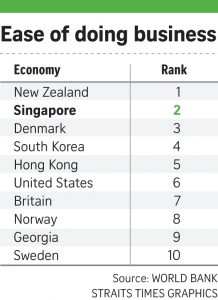A PESTLE analysis (formerly known as PEST analysis) is a frame or a managerial tool in strategic management used to analyze and monitor the macro-environmental factors that may have a profound impact on an organization’s performance. This tool is especially useful when starting a new business or entering a foreign market. In PESTLE P stands for politics, E stands for Economics, S stands for Social, T stands for Technology, L stands for legal and the last E stands for Environment factors.
Politics
Spanish oil giant Repsol had to face a downsizing due to political intervention in Argentina. It started an above average profitability operations in Argentina. But the business was later impounded by the Left Wing government. So the decade long profits didn’t materialize in the end. Certain factors create Inter-linkages in many ways. US-based Google had to deal with the Chinese government’s restrictions on the freedom of speech in order to do business in China. China’s different set of political and legal guidelines made Google choose to cease its mainland Chinese version of its site and direct mainland Chinese users to a Hong Kong version.
Political system is basically the system of politics and government in a country. It governs a complete set of rules, regulations, institutions, and attitudes. A main differentiator of political systems is each system’s philosophy on the rights of the individual and the group as well as the role of government. Each political system’s philosophy impacts the policies that govern the local economy and business environment. There are more than thirteen major types of government, each of which consists of multiple variations.
Political decisions affect the economic environment for example the taxation system in the country, political decisions influence the country’s socio-cultural environment for example the LGBT; few countries are gay friendly, while most are not. Politicians can influence the rate of emergence of new technologies, politicians can influence acceptance of new technologies. Political factors relate to how the government in a country mediates in the economy. Political factors are government regulations that influence business operation positively and negatively. Managers must keep a bird’s eye view over political factors. These factors can be current; they can be impending legislation, political stability and changes, freedom of speech, protection and discrimination laws etc. Political factors are inclusive of tax policies, labor law, environmental law, trade restrictions, tariffs and the most important of all political stability.
Economics
Nike has invested largely on their women’s footwear, clothes and equipments for women in Pakistan since the women are getting more liberal in Pakistan. Pakistan is already one of the primary suppliers for the Nike’s sports items. The rich Pakistanis are brand conscious and spend conspicuously on themselves. Another good example of economic factor is of Coca-Cola operations in countries because of wages. Wages influence the company’s production costs; in countries like the UK they are quite high, whereas in Asian countries the salaries are low. Therefore, Coca Cola manufacturing is on higher side in Asian countries.
There are two great economic factors affecting business models they are demand and supply. Demand is how willing and able a consumer is to purchasing what a business offers and supply is how able the business is to make available what the consumer needs. Economic factors include economic growth, interest rates, exchange rates and inflation rates. These factors greatly affect how businesses operate and make decisions. For example, interest rates affect a firm’s cost of capital and therefore to what extent a business grows and expands. Exchange rates can affect the costs of exporting goods and the supply and price of imported goods in an economy.
Social
Because Pepsi is no-alcoholic drink, it has to maintain the strict differences in cultures around the world. It is essential for Pepsi to communicate its image as a global brand to change people’s perception. Pepsi values all the festivals in order to relate to their market. Reacting to the social factor has helped Pepsi cash upon the opportunity of increasing sales during festive seasons around the world. Since June 1, 2011 a smoking ban in all of Argentina prohibits smoking in workplaces, all public indoor areas, schools, hospitals, museums and libraries, theatres, and all public transport. However, smoking is still allowed in balconies, terraces and patios. The law also included the prohibiting of advertising and sponsoring of tobacco. The fine for breaking the law is equivalent to 250 to 1,000,000 packets of the most expensive cigarettes in the market. Imagine, how cigarette companies could advertise in Argentina?
This measurement of the general environment represents the demographic characteristics, norms, customs and values of the population within which the organization operates. This includes population trends such as the population growth rate, age distribution, income distribution, career attitudes, safety emphasis, health consciousness, lifestyle attitudes and cultural barriers. These factors are especially important for marketers when targeting certain segments. It also includes the local workforce and its willingness to work under certain conditions.
Technology
Apple, Google, Blackberry and Microsoft have changed the information technology scene completely. Google is the most widely used search engine on the internet today. It receives over 3 billion online searches on a daily basis. It was created in 1997 by American computer scientists Larry Page and Sergey Brin.
Technological factors pertain to innovations in technology that may affect the operations of the industry and the market favorably or unfavorably. The progress in technology refers to technology incentives, the level of innovation, automation, research and development (R&D) activity, technological change and the amount of technological awareness that a market possesses. These factors may influence decisions to enter or not enter certain industries, to launch or not launch certain products or to outsource production activities abroad. By knowing what is going on technology-wise, the management of organizations may be able to prevent its company from spending a lot of money on developing a technology that would become obsolete very soon due to disruptive technological changes elsewhere. Technological Factors are linked to innovation in the industry, as well as innovation of the overall economy. Not being up to date to the latest trends of a particular industry can be extremely harmful to operations.
Legal
The foremost criteria include ease of starting a business, ease of obtaining construction permits, access to electrical utilities, ease of registering property, availability of credit, protection for minority investors, tax rates and collection methods, capacity for trade to occur across borders, and ease of enforcing contracts and declaring insolvency. Labor market regulation is also considered in compiling these rankings. It takes few hours to start a business in New Zealand. Thanks to a simple online procedure! High standards of living combined with one of the world’s most skilled labor forces are among the many factors that make Sweden an excellent country within which to carry out business and trade. Its strong infrastructure and well-developed social programs are strong incentives as well.
Although these factors may have some overlap with the political factors, they include more specific laws such as discrimination laws, antitrust laws, employment laws, consumer protection laws, copyright and patent laws, and health and safety laws. It is clear that companies need to know what is and what is not legal in order to trade successfully and ethically in a country.
Environment
Through 2011, Bhutan experienced accelerated economic activities pressured natural resources such as land, air, and water. Development activities increased urbanization, industrialization, mining and quarrying, agriculture, and solid waste management projects. Land degeneration, biodiversity and habitat loss, high fuel-wood consumption, and human-wildlife conflicts are some of Bhutan’s environmental challenges. Notwithstanding these problems, Bhutan remains overall carbon-neutral.
Environmental factors have come to the forefront recently. They have become important due to the increasing scarcity of raw materials, increased pollution and carbon footprint. Environmental factors include ecological and environmental aspects such as weather, climate, environmental offsets and climate change which may especially affect industries such as tourism, farming, agriculture and insurance. Furthermore, growing awareness of the potential impacts of climate change is affecting how companies operate and the products they offer. This has led to many companies getting more and more involved in Corporate Social Responsibilities (CSR) practices and sustainability.















































